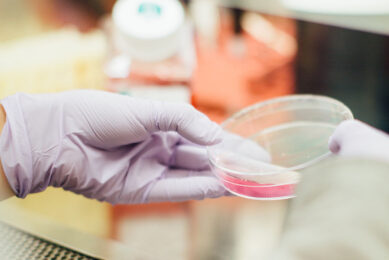World Farmers Organisation firmly reject lab-grown food

The World Farmers’ Organisation (WFO), which represents over 1.2 billion farmers worldwide, has taken a resolute stand against adopting lab-grown food as an alternative to the food resulting from the work of farmers.
“The World Farmers Organisation strongly opposes replacing farmer-grown food with lab-made food stuff. Such substitutes dismiss the work and contribution of farmers to sustainability and push consumers towards a homogenous dietary model that undermines the tradition, diversity, richness, quality, and uniqueness of regional food systems across the planet,” writes the organisation on its website.
The World Farmers’ Organisation is a member-based association that brings together national farmers’ organisations and agricultural cooperatives from around the world. In a recent position paper, the organisation underlines the significance of sustainable agriculture and raises concerns regarding the potential impact of lab-grown food not only on food safety and human health but on cultural heritage, the livelihoods of farming communities, and global food security.
“Lab-grown food […] are supported by marketing campaigns that enhance the myth of greater sustainability compared to agriculture,” noted the World Farmers’ Organisation, adding that farmers “firmly reject this narrative that lacks scientific evidence”.
Food safety aspects of cell-based food’
This year, the Food and Agriculture Organization of the United Nations and the World Health Organization published a report, ‘Food safety aspects of cell-based food’. The World Farmers’ Organisation states that the report makes clear that “there is no reliable evidence to compare cell-based food to farmer-produced one”, adding “there is still much to consider about its nutritional value and how it could affect human health in the long term”.
In terms of claims regarding less land and water use, fewer greenhouse gas emissions and reduced risk of zoonotic diseases, the World Farmers’ Organisation states that such claims have yet to be proven.
Sustainable agriculture
The organisation says that achieving sustainability involves embracing diverse agricultural systems, ensuring inclusiveness and transparency, and promoting research and innovation while preserving tradition.
“The Organisation calls for collaboration among farmers, researchers, and stakeholders in the value chain to address the challenges ahead, develop innovative practices, and deliver sustainable solutions to produce, process, distribute and consume food in a sustainable manner. WFO strongly promotes the critical role of innovation to improve the efficiency of ‘real agriculture’,” states the organisation on its website.













